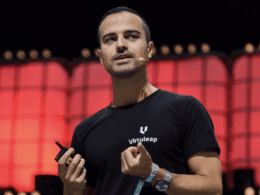As part of the Super Connect for Good Competition supported by Global Good, our Editor-in-Chief Kosta Mavroulakis caught up with one of its Innovation Partners and Judges in Leeds (UK):
Please introduce yourself, your organisation and your role
I am the Programme Director of the NIHR Surgical MedTech Co-operative based in Leeds, United Kingdom. My responsibilities include providing overall operations management for the programme, strategy implementation & translational project selection.
I have over ten years’ experience working with pharmaceutical companies to deliver clinical research at the NIHR Yorkshire and Humber Clinical Research Network, where I was Industry Manager and worked with 14 NHS organisations across West Yorkshire, to develop and implement systems to support commercially sponsored clinical research.
Prior to this, I was responsible for implementing the EU Directive on Clinical Trials regulations at the Sheffield Children’s Hospital NHS Foundation Trust and conducting Cochrane Systematic Reviews.
I have a BSc (Hons) in Technology and Management Sciences and an MSc in Leadership Management and Change in Health and Social Care from the University of Bradford.
What are some of the most pressing social issues that your company is working to address through its technology?
The most pressing social issue for governments worldwide related to healthcare, is addressing health inequalities.
Technology has a direct role to play in this, as it impacts how accessible treatments and therapies are, their acceptability and more importantly, equity of patient outcomes. For example, pulse oximetry meters were more effective in those with lighter skin colours.
How does your organisation support or work with startups and scaleups at present?
We work with startups and scaleups to generate the clinical and health economic evidence required for their technology. This could be via health economics works, clinical trial methodology, proof of concept studies and even patient and public focus groups.
We also support grant funding applications as main collaborators, and we often bring the clinical expertise to a project.
Why did you decide to support the Super Connect for Good 2023 Competition as a Judge Partner? What are you looking for from the applicants and what tips would you give them?
The decision to support this competition was easy – the focus of MedTech needs to be on changing peoples’ lives for the better. If we can raise awareness of this and other key principles, we get closer to meeting that objective.
In terms of what we are looking for from applicants – we want technologies that have the potential to address health inequalities and directly improve patient health outcomes. This is what society needs more than ever.
Tips – well, having a realistic roadmap is essential. Quite often we see very ambitious data and assumptions. Ambition is good, but it needs to be grounded in reality. Understand the target market and the route to market – this is very important where the UK is being considered as it operates very differently and one cannot make assumptions about getting the results you want, in the timeframe you want.
Finally, it is about the patient. If you are designing digital apps, how confident are you that the patients will use them consistently enough to benefit from them? We all have apps we do not use anymore and it would be a shame for all that IP to go to waste. Speak to some actual patients about the potential technology, what do they think? It really is not unusual to have a brilliant technology that does not meet the purpose of the end-user.
In your opinion, what impact will technology have in creating a better future? To what extent do you feel that tech startups and scaleups can contribute to society’s greatest challenges?
Technology will impact by facilitating early diagnosis. In the past, we lacked access to data and to be fair we did not collect it as much as we do now. AI has demonstrated the value of data analysis for the purpose of decision-making. So the type and access to technology will be governed by its ability to help us make better decisions.
Tech startups and scaleups definitely have a role in contributing to society’s greatest challenges, by understanding the outputs and outcomes that matter to the end user (patient or healthcare professional); and by innovating with equity in mind.
—-
The NIHR Surgical MedTech Co-operative in Leeds (UK) is the MedTech Co-Partner of the Super Connect for Good Competition 2023 powered by Empact Ventures and Hays










